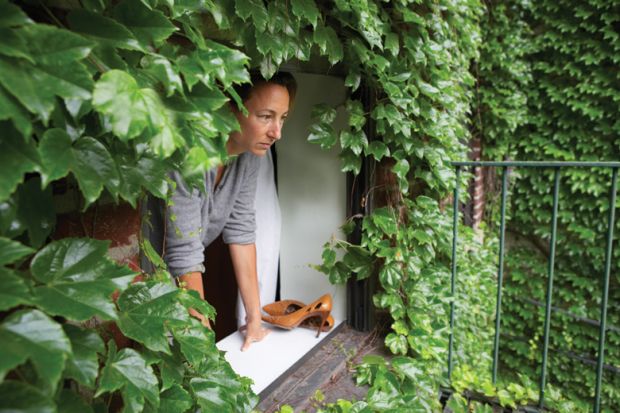A plan to lift fee caps on “flagship courses” that could be considered by a new Australian government has been backed as a “controlled experiment” in uncapping charges by the University of Melbourne vice-chancellor.
Glyn Davis spoke to Times Higher Education during a visit to the UK, shortly before Malcolm Turnbull, the Australian prime minister and Liberal leader, confirmed widespread speculation by setting the date of the federal election for 2 July.
That came days after the government finally abandoned its plan to deregulate fees – deemed a potential electoral liability after the Labor opposition successfully branded the policy as a route to “$100,000 degrees”.
But in a discussion paper published alongside the budget that revealed the scrapping of the move, the government said that it would consult on a proposal to deregulate fees on flagship courses. That idea, recommended in a 2011 review, would allow universities to set their own fees on “high quality, innovative” courses and would be viewed with interest across the world as an experiment in uncapped fees combined with income-contingent student loans.
Professor Davis highlighted the major “system change” that Australia underwent in 1989 with the introduction of tuition fees backed by income-contingent student loans, and the pressure that has come under since the abolition of student number controls in 2009.
The 1989 reforms “worked for 25 years, but in the last five years the further growth in the sector has left government unsure how to pay for it and looking to push more of the cost on to students, but not sure how best to do that”, he said.
Asked about the previous wholesale fee deregulation plan – which was blocked in the Senate, where the Liberal-led government does not have a majority – Professor Davis replied: “I’m on record as saying I was a reluctant supporter.”
He highlighted plans for cuts from successive governments – the latest being a plan for a 20 per cent cut to university funding that remains on the table after the budget.
Professor Davis said that after that plan was initially announced “many of us in the sector just formed the reluctant view that it doesn’t matter who’s in government, we’re going to get cut; it would be better if we were in command of our own finances [rather] than relying on governments who are making decisions about politics, not decisions about the needs of the sector…I was willing to back it because it seemed the least worst evil. And now it’s off the table.”
A ‘test’ of the market
Asked about the criticisms of full deregulation – that very high fees at some institutions would deter poorer students and create a big burden on the government student loan book – Professor Davis replied: “All accurate."
“Those opposed to deregulation ran a very successful campaign talking about $100,000 degrees…The government did not find it easy to respond.”
But he called the flagship courses deregulation proposal “an interesting way of trying to test what markets actually do”.
The vice-chancellor continued: “We don’t know, when you combine that with a deferred loans scheme, how that will work…And I guess if you have a flagship approach at least you can try out, in controlled experiments, what happens if law costs more at this institution than at that university. Does it shift demand? Does it improve quality?”
A flagship courses scheme would mean “you can answer the questions…In that sense, I think it’s worth trying,” he added.
Professor Davis, whose wife, Margaret Gardner, is Monash University vice-chancellor, highlighted the requirement across the sector to cross-subsidise loss-making research with student fees.
“So many of us have been arguing the real issue isn’t student fees, it’s proper funding of research,” he said.
He expressed a hope that the “endless” series of government reviews in higher education will not continue after the election, warning that after every review “governments have been reluctant to take up the findings, because they are thinking politics”.
“We know there are some serious issues with our higher ed system. They are solvable but they require us to make hard choices that are politically difficult. Until we get ministers and governments willing to do that, we are going to have the same facts play out.”
Opinion polls have voters evenly poised between the Liberals and Labor at present. The fact that Australia holds federal elections every three years means that potentially unpopular moves such as raising tuition fees carry an extra risk for governments.
Professor Davis said that after the election he hoped the ability to use previous expert thinking from past higher education reviews would be combined with “using the luxury of being newly elected and not having to worry about the next election too soon” to change the status quo.
POSTSCRIPT:
Print headline: Melbourne v-c endorses ‘experiment’ in lifting fees for some degrees
Register to continue
Why register?
- Registration is free and only takes a moment
- Once registered, you can read 3 articles a month
- Sign up for our newsletter
Subscribe
Or subscribe for unlimited access to:
- Unlimited access to news, views, insights & reviews
- Digital editions
- Digital access to THE’s university and college rankings analysis
Already registered or a current subscriber? Login






